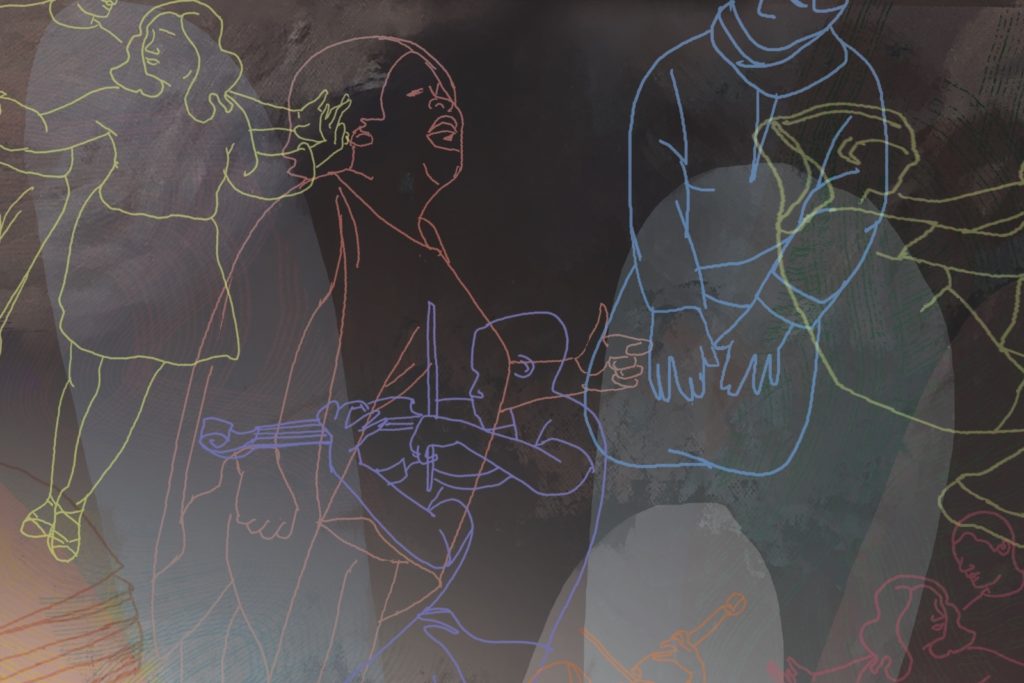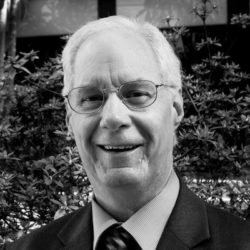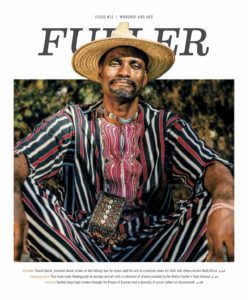
Fuller’s community is what you might call a diverse ecology. An ecosystem is comprised of the physical environment and the life that inhabits it. Chapel services at Fuller gather students, faculty, alumni, and staff—both residential and online—from various ethnicities, nationalities, languages, cultures, socioeconomic statuses, and theological and liturgical convictions. Leading worship in a context with such variety is a great task, but one worth pursuing.
This is the diversity that makes up Fuller’s liturgical ecology, and like all ecologies, there must be a sustainable balance to allow all parts of Fuller’s community to thrive. In making worship choices for Fuller’s chapel, there is freedom that comes from not having one particular liturgical tradition to follow. This allows us to honor all traditions when it comes to prayers, postures, and ritual patterns, drawing from various forms and molding them into a creative service of worship. As denominational allegiance among our students has faded in recent decades, we are able to collect from all traditions to convey new meanings to those who gather for worship. The challenge, of course, is creating a balance that allows all members of our community to be represented and respected.
Fuller has a great breadth of international, ethnic, and cultural diversity, providing an opportunity to celebrate our unity in worship around those cultural expressions. A multicultural approach to worship leadership requires mutuality and solidarity that is often difficult to navigate. Multicultural worship levels the playing field and requires representatives from various cultures to be involved in the decision-making, design, and leadership for the service, adding in each one’s experience, style, and tradition. It is easy to slip into being multiethnic but monocultural, where representation turns into tokenism. We purposefully select diverse worship leaders to help avoid such pitfalls. This intentional diversity is equally part of our liturgical ecology.
Naturally, such diversity leads to the use of multiple languages in almost every service. We particularly use Korean, English, and Spanish in any given service to celebrate the three language programs we have at Fuller and to welcome our friends who speak different languages. We also acknowledge that language is only one component in doing multicultural worship. Learning people’s stories and cultural practices is key to integration and intersectionality and keeping our ecology in balance.
While the process of reflecting Fuller’s diversity—and the larger diversity of Christ’s church around the world—in our worship experiences can be a bit messy at times, we have come to see the many benefits of welcoming these issues. Christian unity does not place one expression of worship over another. Worship has divided so many churches, but to value all traditions and cultures speaks great volumes about our desire to express our faith as members of God’s one family. When we embrace the global breadth of Christian life and worship by listening to and entering into one another’s narratives, we make a strong theological statement that both honors and glorifies God.
Sometimes our planning and leading feels a bit like an experiment in experiencing God’s grace in many forms. Yet, while we know that it would be easier if everyone agreed on a single denominational or cultural approach, it would not best express our worship. We have learned that our worship has become deeply formative in our community’s faith. We have learned from others as we stretch out our arms to embrace the traditions and cultures of our brothers and sisters in faith. We have learned to value the creative nature of what we do— no week is the same as the week before or after. Since we cannot assume that everything is understood by everyone, as leaders we are challenged to plan with prayerful sensitivity to all, always willing to be hospitable and instructive. We have found that as new students worship with us, the sounds of other musical styles and languages become their own over time.
Worship change does not come easily. It is slow work. It is hard to let go of one’s preferences for worship and enter into a new model, if only once a week. We have learned to be patient and gracious as we introduce new practices to our community, because sometimes such change is painful. In return, we pray the community we serve would be patient and gracious to us as we listen, learn, take risks, and sometimes fail, because “multi-everything” worship does not come with a formula. It takes humility, courage, and trust by both the worship leaders and the community to worship well. As in any ecology, there is a beautiful, delicate, and fragile balance. We pray that our chapel might contribute in a small but integral way to keeping Fuller’s ecology healthy, balanced, and thriving—and perhaps also to benefit the ecology of Christ’s church near and far.



